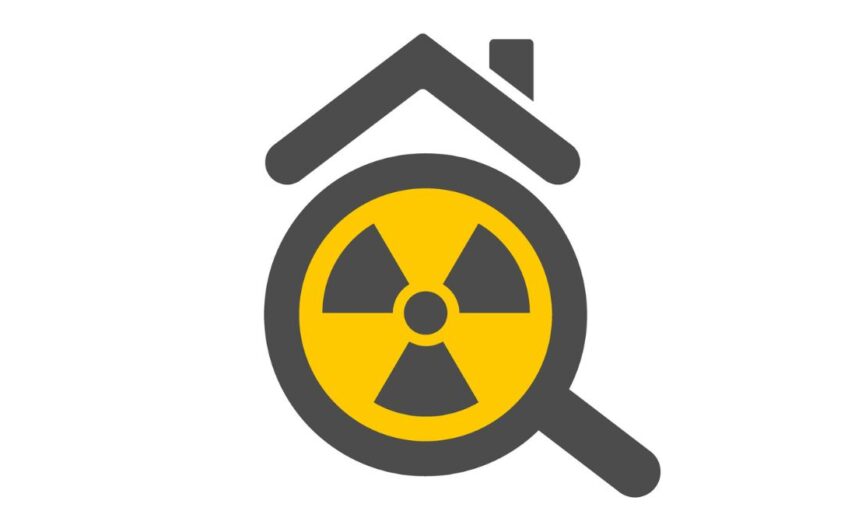Many Floridians often don’t feel the need to worry about radon, as it is most prevalent in colder climates. However, radon levels in the state are higher than one might think. Here are five facts every homeowner should know about radon, as protecting your home is vital.
You Can’t Detect Radon With Your Senses
Radon is a colorless, odorless, and tasteless gas that occurs naturally in the environment. It is a by-product of uranium and thorium decay in the ground. In concentrated amounts, radon is dangerous to human health, making the fact we can’t detect it with our senses particularly worrisome.
Radon Is Everywhere
Radon exists in all rocks, soils, and water. It moves to the air from the ground, breaking down into smaller particles. These particles can enter our airways as we breathe. While outside, radon is typically not harmful, as it is in a very low concentration. However, radon can accumulate and become a problem in indoor areas, since there is less airflow and ventilation.
Radon Exposure Can Cause Lung Cancer
Concentrated radon exposure is one of the leading causes of lung cancer. The chances of radon-induced lung cancer are also much higher for smokers than nonsmokers.
You Can Mitigate Radon in Your Home
Radon in the atmosphere is inevitable, so protecting your home from its concentrated presence is crucial. Here are a few important steps to take to make your home safe:
- Install a radon mitigation system
- Seal floors and walls
- Check for cracks in the foundation
- Improve general ventilation in your home
Testing Is the Only Way To Gauge Radon Presence
Because it is so challenging to detect, regularly testing your home for radon is key. Hardware stores and your local health department have at-home testing kits available. You could also hire a professional if you want a more thorough search. Short-term and long-term tests are available, so use discretion when deciding how often to test your home for radon.
By learning these five facts that every homeowner should know about radon, you can protect yourself and your family from this dangerous gas. If you prepare your home and check its radon levels regularly, you can stay safe.










 Deering Estate
Deering Estate
 Massage Envy South Miami
Massage Envy South Miami
 Calla Blow Dry
Calla Blow Dry
 My Derma Clinic
My Derma Clinic
 Sushi Maki
Sushi Maki
 Sports Grill
Sports Grill
 The Healthy Kitchen
The Healthy Kitchen
 Golden Rule Seafood
Golden Rule Seafood
 Malanga Cuban Café
Malanga Cuban Café

 Kathleen Ballard
Kathleen Ballard
 Panter, Panter & Sampedro
Panter, Panter & Sampedro
 Vintage Liquors
Vintage Liquors
 The Dog from Ipanema
The Dog from Ipanema
 Rubinstein Family Chiropractic
Rubinstein Family Chiropractic
 Your Pet’s Best
Your Pet’s Best
 Indigo Republic
Indigo Republic




 ATR Luxury Homes
ATR Luxury Homes


 2112 Design Studio
2112 Design Studio
 Hamilton Fox & Company
Hamilton Fox & Company
 Creative Design Services
Creative Design Services
 Best Pest Professionals
Best Pest Professionals
 HD Tree Services
HD Tree Services
 Trinity Air Conditioning Company
Trinity Air Conditioning Company
 Cisca Construction & Development
Cisca Construction & Development
 Mosquito Joe
Mosquito Joe
 Cutler Bay Solar Solutions
Cutler Bay Solar Solutions


 Miami Royal Ballet & Dance
Miami Royal Ballet & Dance
 Christopher Columbus
Christopher Columbus
 Pineview Preschools
Pineview Preschools
 Westminster
Westminster
 Carrollton
Carrollton
 Lil’ Jungle
Lil’ Jungle
 Frost Science Museum
Frost Science Museum
 Palmer Trinity School
Palmer Trinity School
 South Florida Music
South Florida Music
 Pinecrest Orthodontics
Pinecrest Orthodontics
 Dr. Bob Pediatric Dentist
Dr. Bob Pediatric Dentist
 d.pediatrics
d.pediatrics
 South Miami Women’s Health
South Miami Women’s Health

 The Spot Barbershop
The Spot Barbershop
 My Derma Clinic
My Derma Clinic




 Miami Dance Project
Miami Dance Project

 Rubinstein Family Chiropractic
Rubinstein Family Chiropractic
 Indigo Republic
Indigo Republic

 Safes Universe
Safes Universe
 Vintage Liquors
Vintage Liquors
 Evenings Delight
Evenings Delight





 Atchana’s Homegrown Thai
Atchana’s Homegrown Thai
 Baptist Health South Florida
Baptist Health South Florida

 Laser Eye Center of Miami
Laser Eye Center of Miami
 Visiting Angels
Visiting Angels
 OpusCare of South Florida
OpusCare of South Florida

 Your Pet’s Best
Your Pet’s Best





 HD Tree Services
HD Tree Services
 Hamilton Fox & Company
Hamilton Fox & Company


 Creative Design Services
Creative Design Services